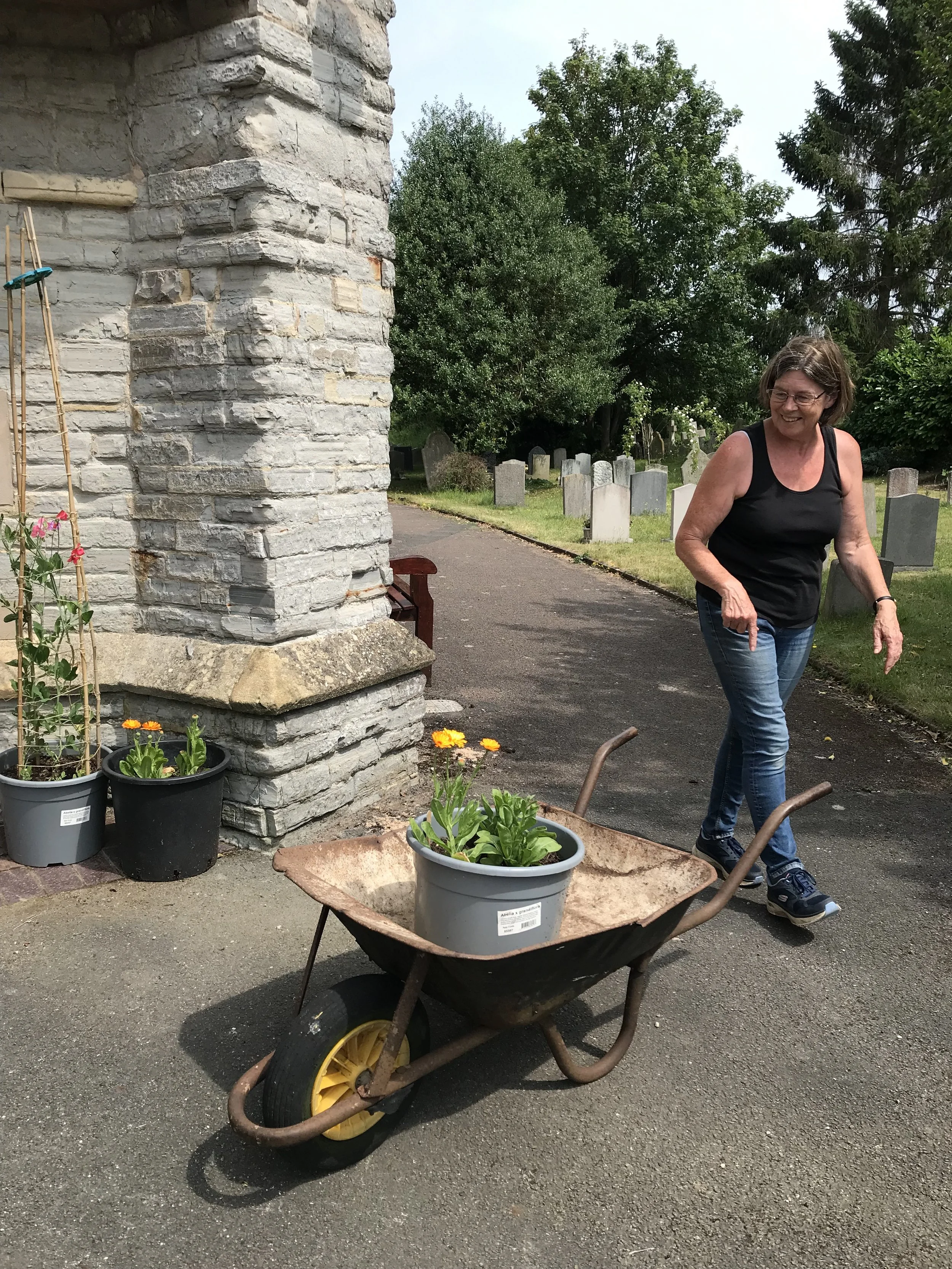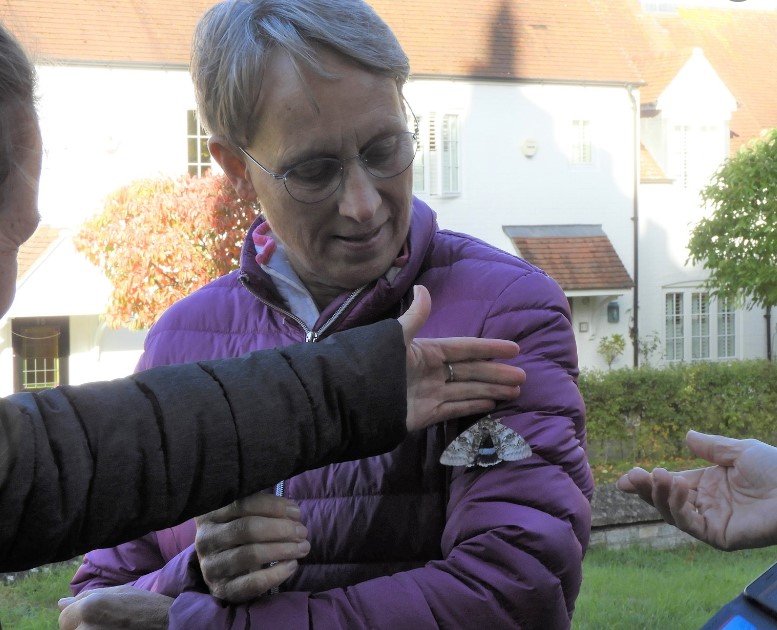Eco Church – Our Silver Award
In 2018 we registered St James Church with Eco Church, A Rocha UK’s award scheme for churches in England and Wales who want to care for creation as an integral part of loving their neighbours and worshipping God.
The Church of England’s General Synod has set targets for all parts of the church to work to become net zero by 2030 and Eco Church provides guidance, resources and incentive for churches to play their part by measuring their own progress towards the goal of net zero carbon emissions. Registered churches complete an on-line survey which enables them to record their achievement in caring for God’s world in five categories
Worship and Teaching, Management of Buildings, Management of Church Land, Community and Global
Engagement and Lifestyle.
The actions taken as a result of working through the survey count towards Eco Church Awards at Bronze, Silver or Gold level. We found that we were actually not far off Bronze level when we first registered, and we were awarded our Bronze certificate by the end of 2018. Our efforts to achieve Silver, however, were interrupted by the Covid pandemic, but since then we have worked hard to continue to improve and further reduce our carbon footprint. Below are just a few examples of the things we have done – all are actions that any household can consider, and we hope that by our own success as a church we can encourage our parishioners to look at ways they can help to tread more lightly on the planet too.
We have measured our energy use and calculated our carbon footprint and we encourage our church members to undertake a personal carbon footprint audit.
We have replaced our ancient gas heating with a new energy efficient electric heating system and use a “green” energy supplier for our electricity.
We have replaced our light bulbs with LEDs
We have created a churchyard haven for wildflowers and native wildlife.
We pray regularly for environmental issues and caring for God’s earth often features in our hymns and sermons.
We are a Fairtrade church and promote LOAF (Local, Organic, Animal-friendly and Fairtrade) at church events.
And we are very pleased to have been awarded Eco Church Silver in December 2023.
Follow the link to find out more about Eco Church and the work of A Rocha here.
Churchyard Mow Summer 2023
Churchyard conservation Project
Churchyards are usually areas of ground that have remained uncultivated for many years, and as such they have the potential to be havens for wildlife where plants and animals can thrive among the graves and monuments. Indeed, until the 20th century they were wild, un-mown places, alive with bees and butterflies, occasionally even grazed by sheep! In the 21st century properly and sympathetically managed churchyards can again become places of wild beauty and tranquillity, surrounding us with the comforting reminder of the ongoing life and vitality of God's creation even amidst the sadness we feel at the passing of our loved ones.
Here at St James, as in a growing number of parishes, we are putting into action a plan to manage our churchyard with wildlife conservation in mind. We began the process in a small way in the spring of 2013, building and placing bird boxes in all three churchyards, more than half of which became home to families of blue tits and great tits over the summer. The Churchyard Conservation Project is working to transform selected areas into wildflower meadow and create a habitat for bees and butterflies and other small creatures, which contrasts with the short grass in other parts of the churchyard and mown paths among the flowers and graves.
The Early Days
The seeds of the Churchyard Conservation Project were sown early in 2013 when, while looking at ways we might try to encourage new people to come along to church, and with the added asset of an enthusiastic zoology graduate embarking on a career in conservation and ecology, we hit upon the idea of organising a bird box building session in the churchyard, which we advertised with posters around the village, and which proved to be a huge success.
Inspired by the success of a similar project at Oldberrow church, we decided to develop part of the churchyard at St James as wildflower meadow and the Churchyard Project was born.
In November 2013, a team of volunteers began preparing the wildflower areas, weeding graves, rooting out unwanted saplings and building a habitat pile and a very impressive new compost heap. The process continued in 2014 with regular working parties and events and when we cut the wildflower meadow for the first time at the end of the summer, we celebrated the conclusion of our first year with a working party and barbecue which has since become an annual event. The support of volunteers from the congregation and from the wider community has been, and continues to be, fantastic - we couldn't do it without all your hard work!
Churchyard Areas
The project was initially undertaken in stages. Our first task was to begin to recreate the right conditions for wild meadow to develop, and the plan shows which areas we are managing for wildflowers.
We weren't sure if the resulting 12 boxes would be occupied in their first year, as they were put up rather later than would have been ideal, but seven of them (five at St James, one at the Old Church and one at St Peter's) quickly became home to families of blue tits and great tits. Throughout the spring and summer we posted updates and photographs of our resident families and gradually the idea of doing more to actively protect and encourage the wildlife in the churchyards evolved.
Areas B and C were wildflower meadow in the past, and in 2013 volunteers identified over 40 different species of wild flowers and grasses still present. These plants are gradually re-establishing themselves and during Cherishing Churchyards Week 2017 a group of ecologists identified over 150 different species of plants and animals thriving in the churchyard. In Area D, against the church north wall, the soil is thin and poor with grass and creeping buttercup competing with the wildflowers growing there naturally. Area A is quite sparse in places, with thin grass, moss and patches of bare earth and is particularly colourful when the early spring flowers are blooming. This part of the churchyard was actually the most successful in the first year with lots of interesting things appearing including the beautiful white Star of Bethlehem and a sea of oxeye daisies.
The meadow areas are mown early in the spring and then left to grow, and cut short in late summer after the flowers have gone to seed. The whole area is then kept short and tidied for the winter. The project relies on volunteers to help maintain the wildflower areas, and we have established a regular pattern of working parties in March, July and November when people come along to carry out general maintenance, enjoy each others' company (and hot drinks and cake). The spring and autumn sessions finish with a lunch of hot soup and bacon rolls, and the summer mow is followed by a barbecue in the churchyard. New volunteers are always most welcome - you don't have to be a church-goer to get involved! Details can be found on this website under Services/Events, on our Facebook page, or look out for posters around the village.
Protecting God's Creation
Christians should be leading the way in taking practical steps to heal out plant and protect its people. It is our responsibility and privilege to care for God's creation.
Our day to day choices and attitudes are often driven by our culture and lifestyle preferences and not for the world.
The science is clear because of human activity we see effects like species extinction and climate change and we need to choose to move forward with hope, accept the enormity of the problem and take responsibility.
Caringforgodsacre.org.uk works nationally to support groups and individuals to investigate and care for, and enjoy burial grounds and graveyards.
Our team have worked tirelessly over the past few years to ensure the biodiversity in our churchyards is thriving.
Alveston has a vast wealth of species identified in our Summer species count, and offers essential refuge to native wildlife.
We hope that this will get us all thinking, and talking amongst ourselves and encourage us to be more aware of how our actions may impact on God’s creation. We may feel that buying one unwrapped cucumber isn’t contributing a lot, but if we all undertake to change the little things, collectively we CAN make an impact!
Why not share your own ideas by commenting on our Facebook page?
https://www.facebook.com/StJamesAlveston/photos/a.340050246044630/1942098719173100/?type=3&theater











